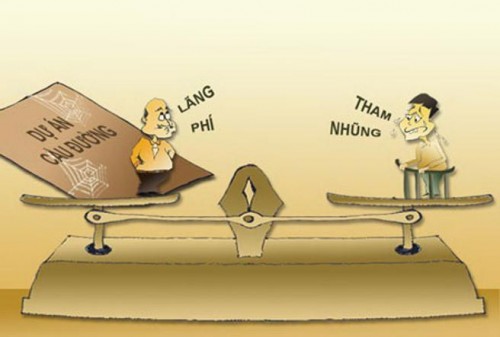While Việt Nam’s Finance Ministry writes a proposal to tax second homes, the Việt Nam News asked our readers to share their thoughts on a potential multiple-home tax. Here are some of the responses:
Nguyễn Thanh Hà, Vietnamese lawyer, Hà Nội
As far as I know, many countries tax multiple-house owners in order to develop a transparent real estate market, avoid speculation and ensure equality of access to the housing market.
These countries encourage people to own a home, but they impose extra taxes on the second and subsequent houses. As a lawyer, I think that Việt Nam should implement this kind of tax for a few reasons. First, Việt Nam has a large population and limited land area. Second, real estate speculation is popular in big cities, and it pushes up housing price and makes it difficult for many people, especially low-income residents to buy or rent houses.
The Finance Ministry’s proposal has stirred public debate. The controversy is understandable, because the ministry has yet to announce the details. Real estate businesses want fewer taxes: lower taxes inspire homebuyers. Those who have not owned a house will applaud the new proposed tax in hopes that housing prices will be more affordable for them.
Therefore, it is surely necessary that the Finance Ministry carefully study Việt Nam’s situation and predict possible impacts of the tax.
If the new tax is approved, I think that Government should hold off implementing it until 2020, so people and businesses have time to prepare and understand it. The tax should be on the third houses and any subsequent ones and on luxurious housing.
Nguyễn Thúy Nga, Vietnamese post-graduate in UK
Living in the UK, I was curious how homeowners are taxed here. I want to share what I found: buying property or land, homebuyers in UK pay a stamp duty land tax. Main homes are taxed if the purchase price is over £125,000, and the amount paid is assessed on a tiered scale.
Any second homes – a holiday let, a property bought as an investment or a property purchased for another family member – attract a higher rate. Homeowners pay the duty on any property costing £40,000 or more. For each tier, one pays a rate three percentage points higher than the tier below.
I myself think that this approach to second home taxation is reasonable, as it ensures the principle that the richer you are, the more taxes you pay. It helps ensure social equality. More importantly, it’s the value of the house that needs to be taken into account, not solely the number of houses you own. I hope Việt Nam’s Finance Ministry considers this and draws a similar reasonable tax.
Phạm Tiến Dũng, Vietnamese in Germany
In Germany, people who own more than one house are taxed. In my opinion, the tax is good and works regardless of location.
For example, in big city with big housing demand, the tax could help solve the problem of some persons having many houses while others don’t have stable accommodation.
However, the tax also reveals some disadvantages. In Berlin, the profits that come from renting a house are small compared to the cost of building and taxation. People build extra houses for rent, and it takes them a long period of time to get back their investment. Ultimately, if multiple-house owners have to pay extra tax, fewer will be interested in building houses for rent.
Subsequently, a decrease in the number of rental options creates difficulties for low-income earners. In another case, if the landlord increases rent because he or she has to pay more taxes, tenants end up paying more. So, who is actually taxed?
If Việt Nam wants to tax multiple-house owners and redirect tax revenue to developing new low-cost apartment buildings for low-income earners, I think it’s OK. — VNS

















